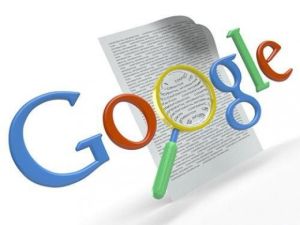 Web spam is closely related to SEO and so we need to understand what it is from a search engine’s point of view. Whenever a webmaster uses means to boost the rank of a page without improving the actual value of the page it is considered spamming. With that definition in mind it is easy to see that many webmasters have indeed been spamming but some would not have labeled their actions as such.
Web spam is closely related to SEO and so we need to understand what it is from a search engine’s point of view. Whenever a webmaster uses means to boost the rank of a page without improving the actual value of the page it is considered spamming. With that definition in mind it is easy to see that many webmasters have indeed been spamming but some would not have labeled their actions as such.
We all would agree that it is important to do some sort of backlinking in order to rank but when that does not happen naturally, such as people sharing content or linking to your great content, then it is manipulating the search engines.
To provide a clear cut view for you here are some things that the search engines consider as spam.
- Unnatural Link Building: Paying for links, soliciting lots of reciprocal links, using software to mass produce backlinks and linking from bad neighborhoods are all examples of unnatural link building that Google penalizes.
- Content Cloaking: This process involves providing one set of content to users and another for the search engines.
- Malware: Using your site to infect users computers with malware.
- Manipulative Content: The use of duplicate or copied content, stuffing your content with keywords or poor quality content just for the sake of getting ranked and serving up ads.
- Page Redirects: Ranking one page then redirecting visitors to another site.
The above list provides some of the main reasons that your site may be tagged as a spam site and would have been penalized during the Penguin update. So you see that it’s not all just about the links.
That said there are some on-site factors that would have been considered during the Penguin update as well because spamming can occur on page too. We will consider these below.
On Site Web Spam
In your bid to fix your site after the update you should not neglect the on page elements. Here are some areas to consider.
- The Domain Itself: While there are some valuable .info domains they are few and in between since the majority of them are more targets for spam than other extensions.
- Words Count: In the past we associated spam content with fewer words but there has been a shift with increasing word counts (between 750-1000 words) for spam pages.
- Keywords In Title: Again in the past this was a must but you need to be careful when doing this today.
- Percentage Of Text Visible: On site spam also takes the form of hidden text so that it is visible to the search engines alone but not to site users.
These are just a few things that search engines identify as on site spam and there are many others although the bulk of them are not as obvious as these. When you evaluate your sites for any one these bad practices you also need to take into consideration that you can also be penalized if sites using these tactics are also linking back to you.
While very few webmasters can blame a site hack for on site spam the majority of these events are knowingly carried out by webmasters. These tactics may have been overlooked in the past and may even have brought rewards but going forward if you hope the make a living online you need to throw these tactics out the door.

